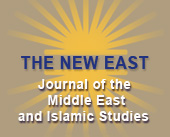Education under imperialism: The philosophy behind the educational policy of the powerful European countries from the middle of the 19th to the middle of the 20th century
Kamal Moed
Researchers, especially in the fields of education and sociology, have always attempted to discover the extent of the influence of education on the life of any society in determining its future. These researchers have emphasized the characteristics of that education given by powerful European countries from the middle of the 19th century to the middle of the 20th century, mainly by Great Britain and France, to the peoples of their colonies in Africa and Asia. The key questions dealt with in this article describe the essence of that education and whether it was similar to the education given to the Europeans themselves. In other words, did the children in the colonies receive the same education as given to the children in Europe?
The article has tried to answer these questions by looking at the major motives of modern European imperialism, reviewing the imperial philosophy which guided the planning of the education policy of the powerful European countries, mainly by Great Britain and France, and imposing it on peoples under European patronage, mandate or occupation. The main argument is that this kind of education, in its essence, was unique, and expressed purposes and tasks of oppression and control in order to determine the direction of development in a way that served the major interests of those powerful European countries. Therefore, any attempt made by those countries to persuade the population of the decency and fairness of the imperial education system was no more than a deception.

